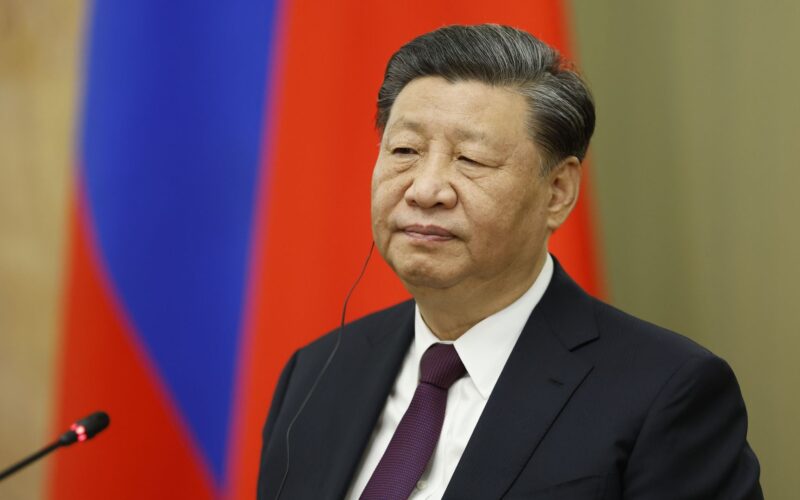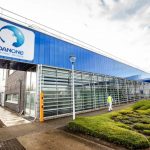China is now the leading global manufacturer of electric vehicles. In 2023 China added more solar power to its national grid than all other nations on the planet put together. The connection that Chinese consumers have between the health of the planet and their family and personal health should not be underestimated – China has felt first hand the impact of pollution on its cities, waterways, and people.
Agriculture is lower on China’s decarbonisation food chain, but the pace of progress could leapfrog New Zealand.
Beijing’s immediate focus is on decarbonising the energy, transport, and manufacturing sectors, but policy in the agricultural sector is also on its way. China is already running carbon reduction pilots with large scale farmers in the north-eastern provinces.
The government has also mandated nationwide emissions data collection from large-scale farming operations. Analysing and collecting data will be at the centre of China’s decarbonisation strategy.
If this initiative is successful, some researchers believe we could see China implement nation-wide agricultural carbon-reduction targets within the next five years. Despite being 10 years behind the “Net Zero by 2050” targets adopted internationally, our largest trading partner is demonstrating how to have a data-informed, tested, and ambitious decarbonisation strategy.
Indeed, many believe that China will be the only country to meet its climate goals.
Government policy will drive consumer expectations for sustainable products. As China tightens up on its own decarbonisation, New Zealand exporters will face increased pressure from both regulators and consumers to meet or exceed emissions reductions and sustainability claims.
The focus on sustainability policy is having a direct impact on local business innovation and marketing efforts. Yili has already created China’s first carbon-neutral milk and yoghurt, and high-end grocery retailers such as Ole Supermarket are promoting choices that offer lower carbon emissions and organically produced food.
“Sustainability” itself is not yet a purchase driver for most consumers, but the connection between sustainability and food quality and safety is growing.
New Zealand has a natural advantage in feeding people “well”. Other policies, such as the Healthy China 2030 policy, reflect the pressure on Beijing to feed people “well” not just “full”.
Urbanisation and changing diets have led to diabetes skyrocketing. Being overweight or obese is a concern for around half of China’s population. The Healthy China Policy is encouraging dietary changes such as reducing pork consumption and increasing the consumption of protein-rich lean meats.
Despite the seemingly endless availability of things to eat, China still faces huge challenges with food security. China feeds approximately 17% of the world’s population with only 7% of the world’s arable land.
The pressure on farmers and land shows, with China using roughly four times the global average levels of pesticides. New Zealand’s advantage here is obvious: people will still want a piece of “natural” Aotearoa – but only if our “pure”, “clean” messaging is backed up by data-based sustainability credentials.
China eats through New Zealand’s annual meat production in less than a week. A growing middle class is an opportunity for New Zealand exporters but an opportunity we risk being blinded by if we only consider our own interests in the trading relationship.
China’s lack of arable land and drive to be self-sufficient raise huge questions for how Beijing will feed its people. Anyone who has been to China in the past 10 years can see that technology will be at the heart of China’s sustainable transformation and middle-class development.
This leaves a rather large (possibly cell-grown) elephant in the room in the conversation around future proteins. Asked asked about novel proteins, the message from Chinese state-owned enterprises and government departments was clear: China has a lot of research and technology ready to release when the market is ready.
Given the government’s ability to influence and subsidise the creation of new markets (China spent roughly $173 billion in subsidies for the EV sector from 2009-2022), the concept of “market readiness” could be heavily government-driven.
China has wowed the world in its uptake of mobile payments, EV production and rapid technological development. In the next two to three decades, we are likely to see similar leaps and bounds in sustainability and food technologies.
New Zealand already has an abundance of natural advantages as a producer of safe, quality food. Embracing sustainable progress in our food systems will strengthen New Zealand’s ability to meet the needs of regulators and consumers and stay close to developments in novel food technologies.
For more information on China’s future sustainable food policies, the full New Zealand China Council report Tasting the Future: China’s Sustainable Protein Outlook can be found here.





















